A cover letter serves as an introduction to your resume, outlining your qualifications and the reasons you are the best applicant for the position.
Typically, cover letters are sent with resumes and give the prospective employer or hiring manager more information about your qualifications and what distinguishes you from the many other qualified candidates.
A well-written cover letter should highlight particular skills necessary for the job, past work experiences that showcase your abilities in the particular field, and notable accomplishments that prove that you are indeed the ideal candidate for the job.
Unlike a resume, a cover letter is often an excellent opportunity to introduce yourself to the hiring manager more personally while demonstrating your personality and enthusiasm for the job.
However, while drafting your cover letter, you need to be careful not to restate what is already provided in the resume. As a general rule, keep it short and relevant. While no two cover letters will be the same, the majority of them aim to provide the prospective employer with just enough background on you and how you can add value to their organization.
This comprehensive guide will discuss the basics of writing an effective cover letter including:
- The importance/impact of a cover letter on a resume
- The ideal length and format of the cover letter
- How to write an appealing and convincing cover letter
- When and how to submit your resume cover letter
- Guidelines for writing cover letters
Free Templates and Examples
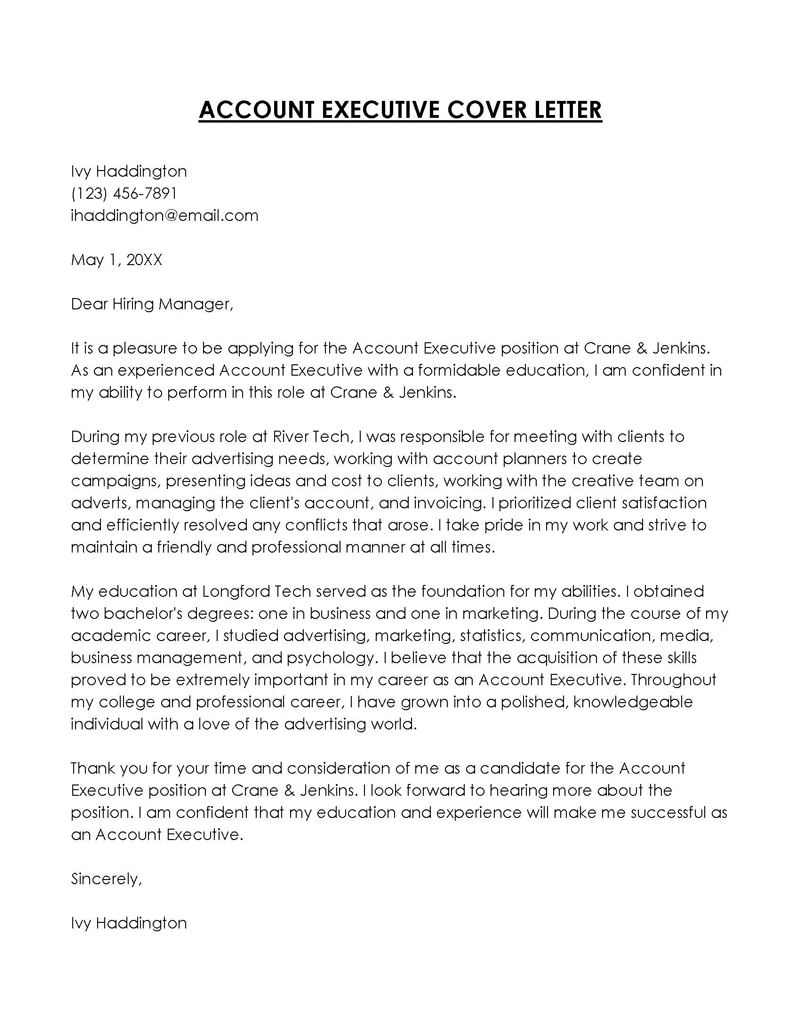
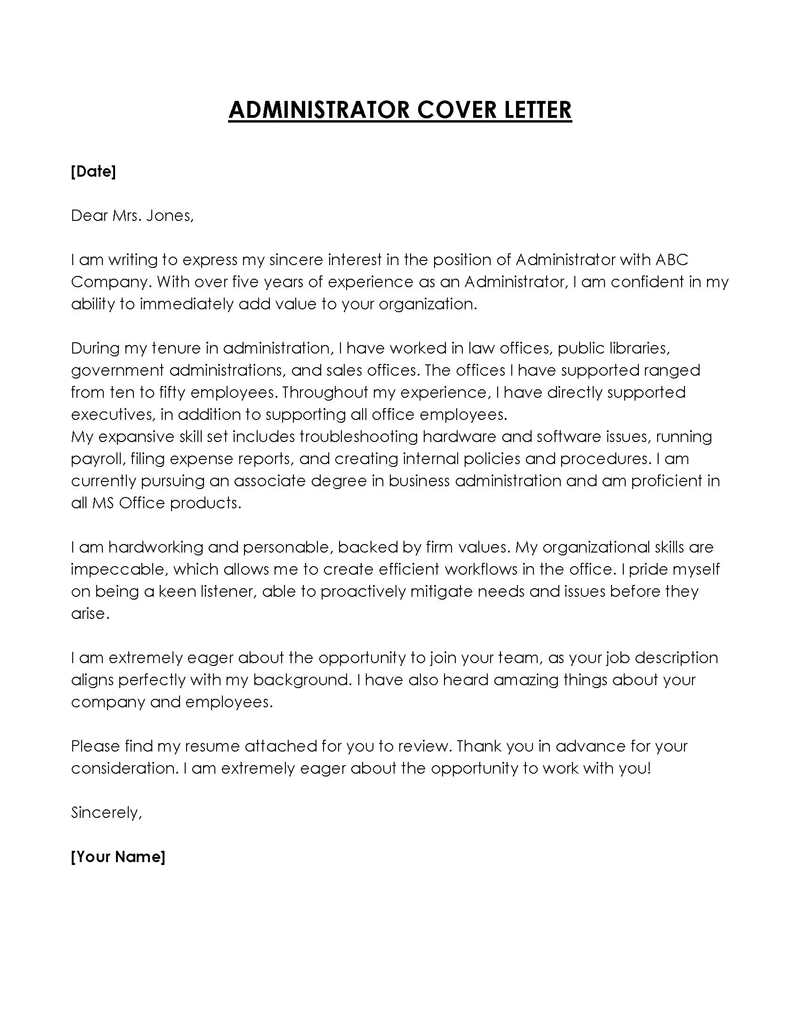
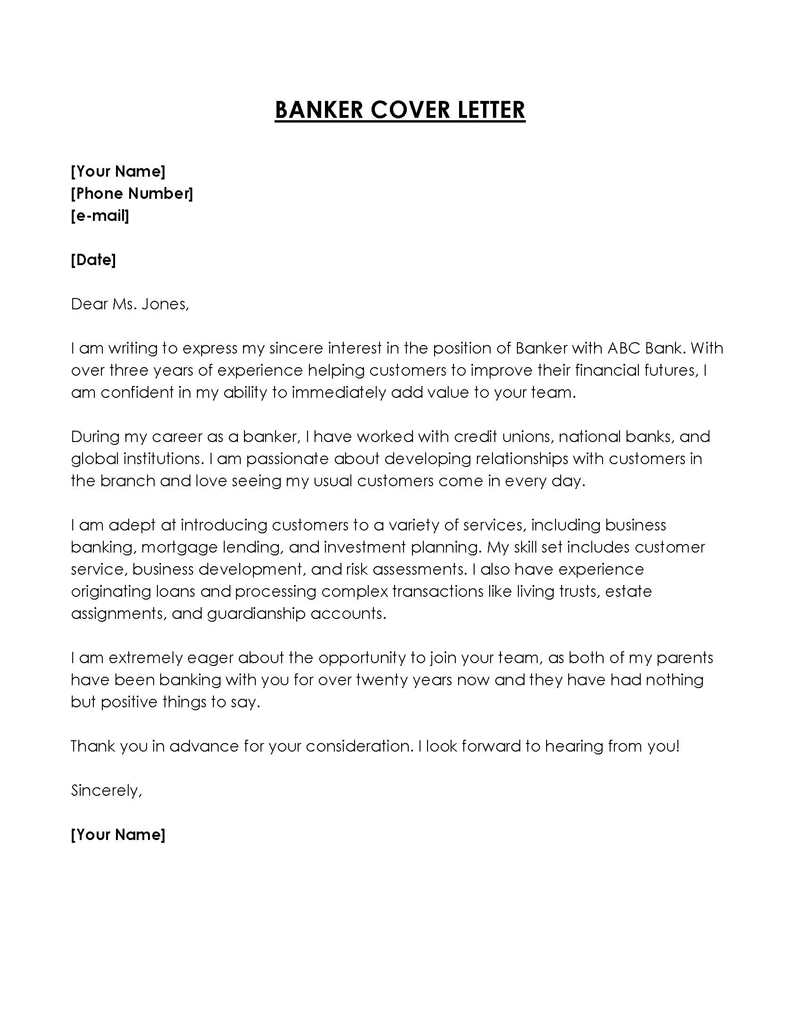
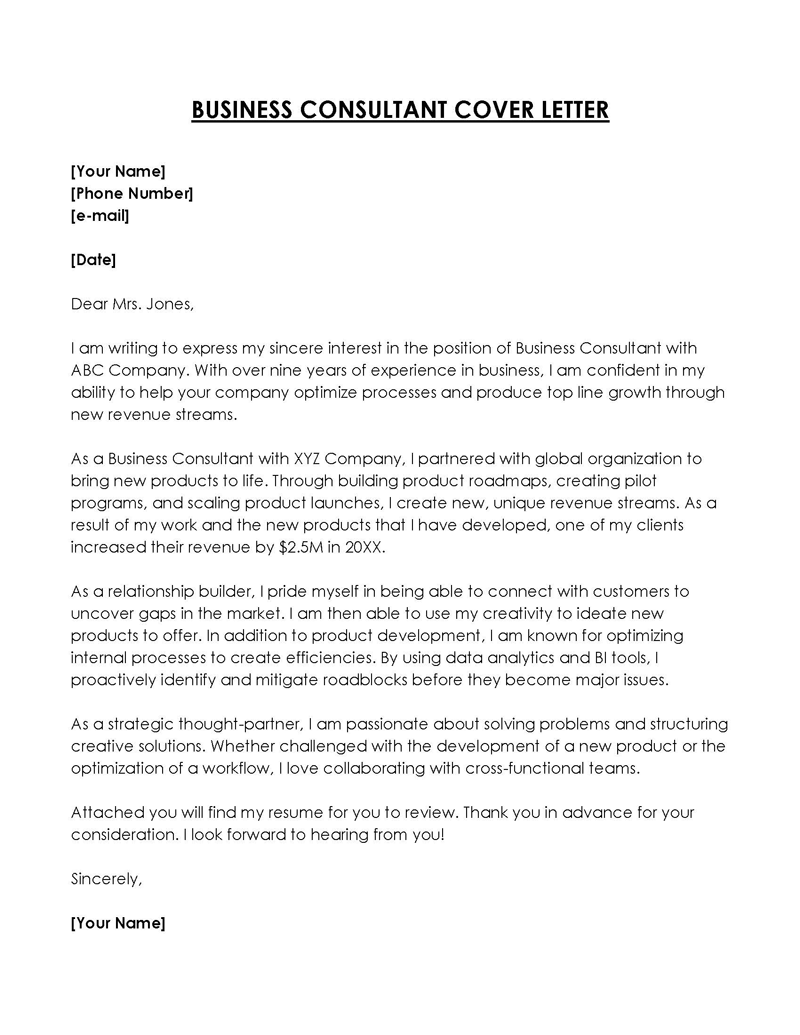
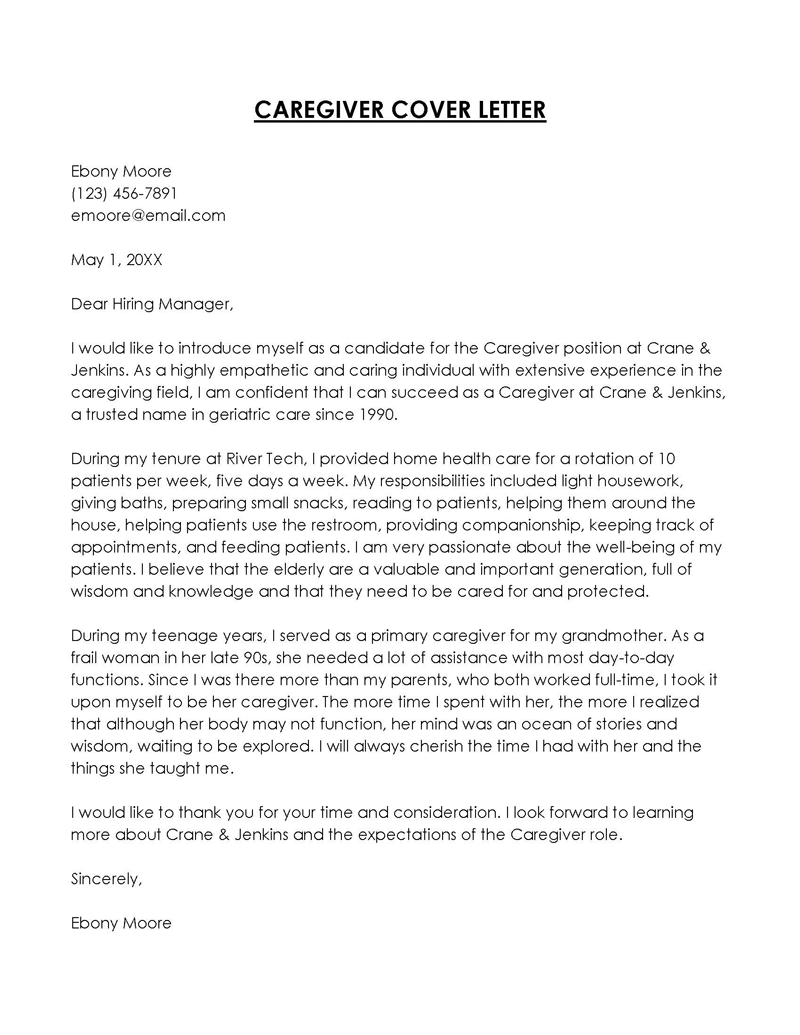
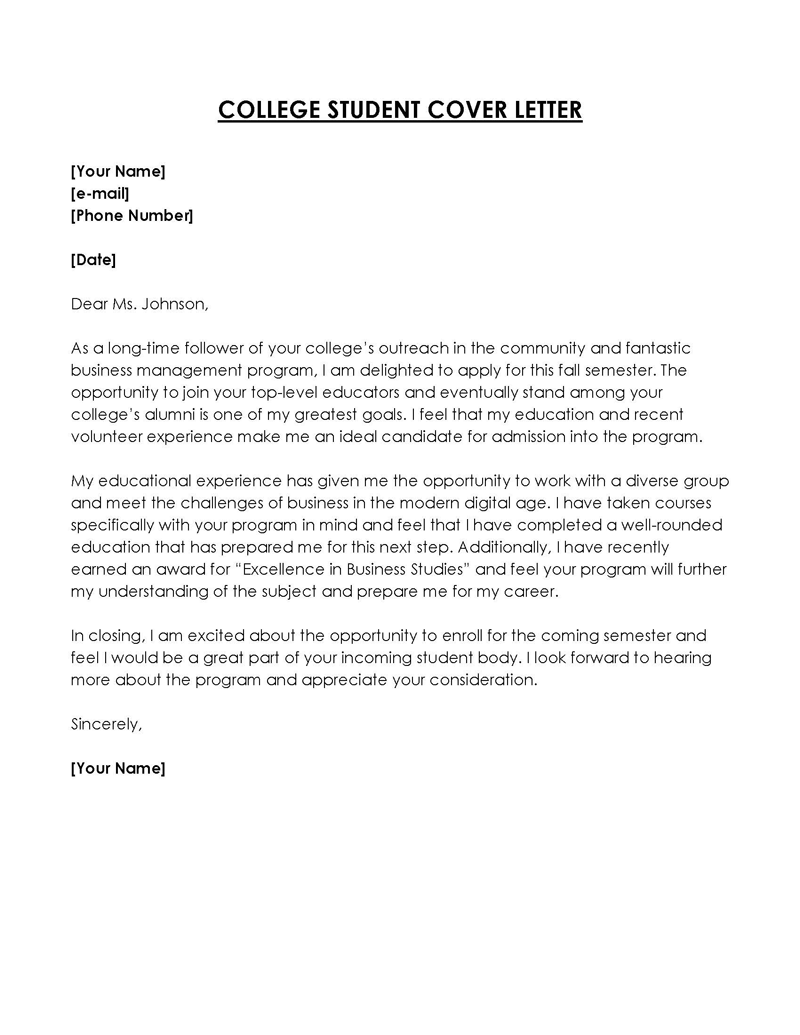
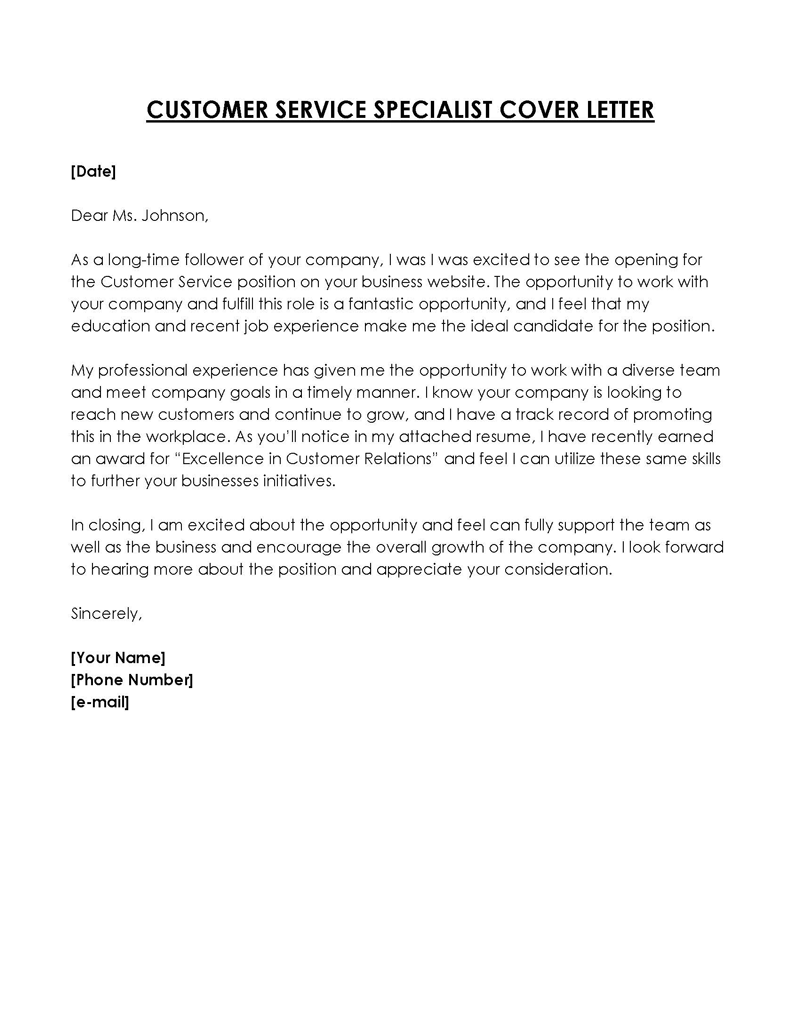
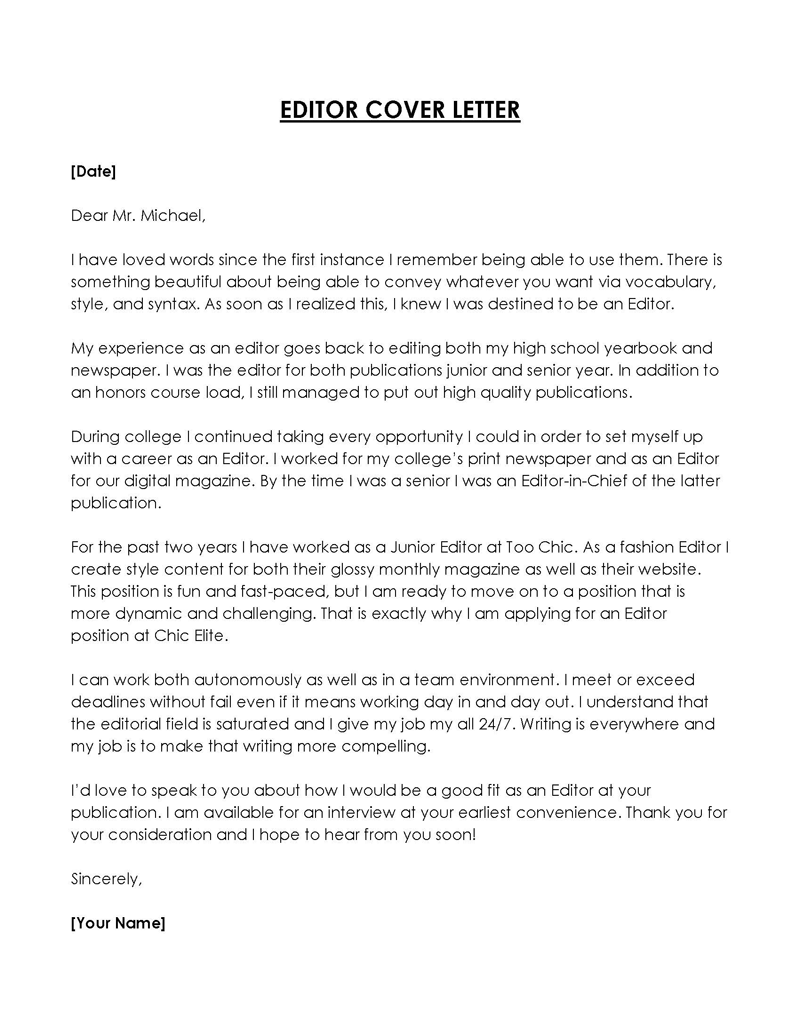
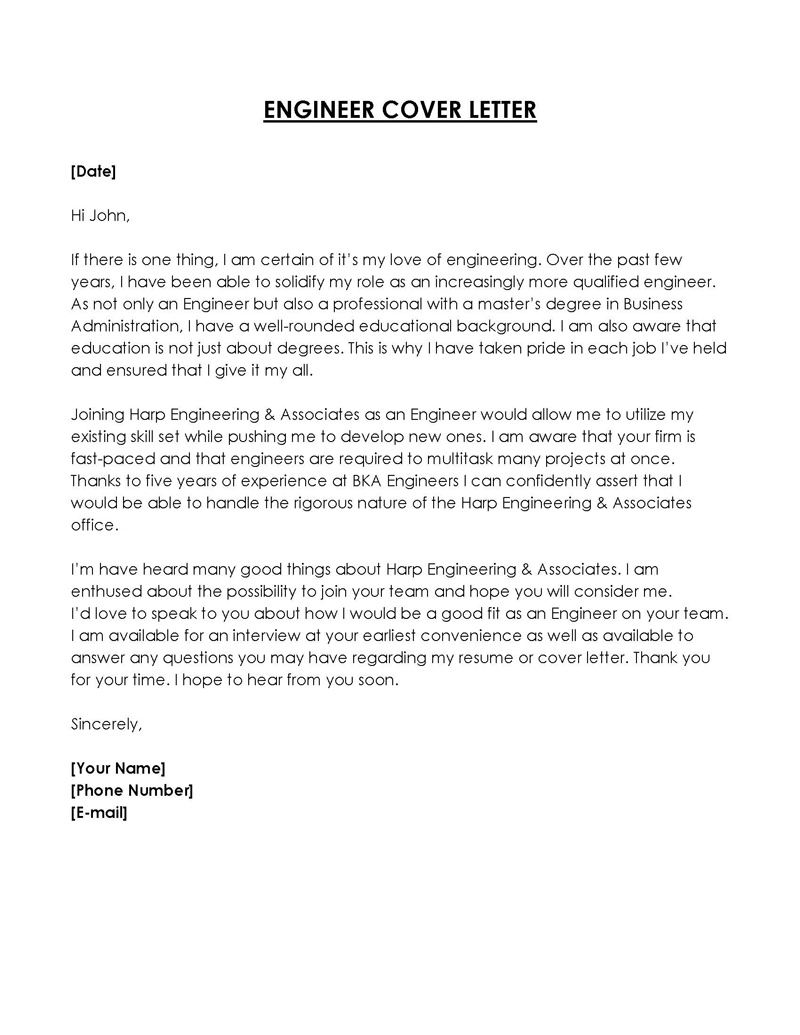
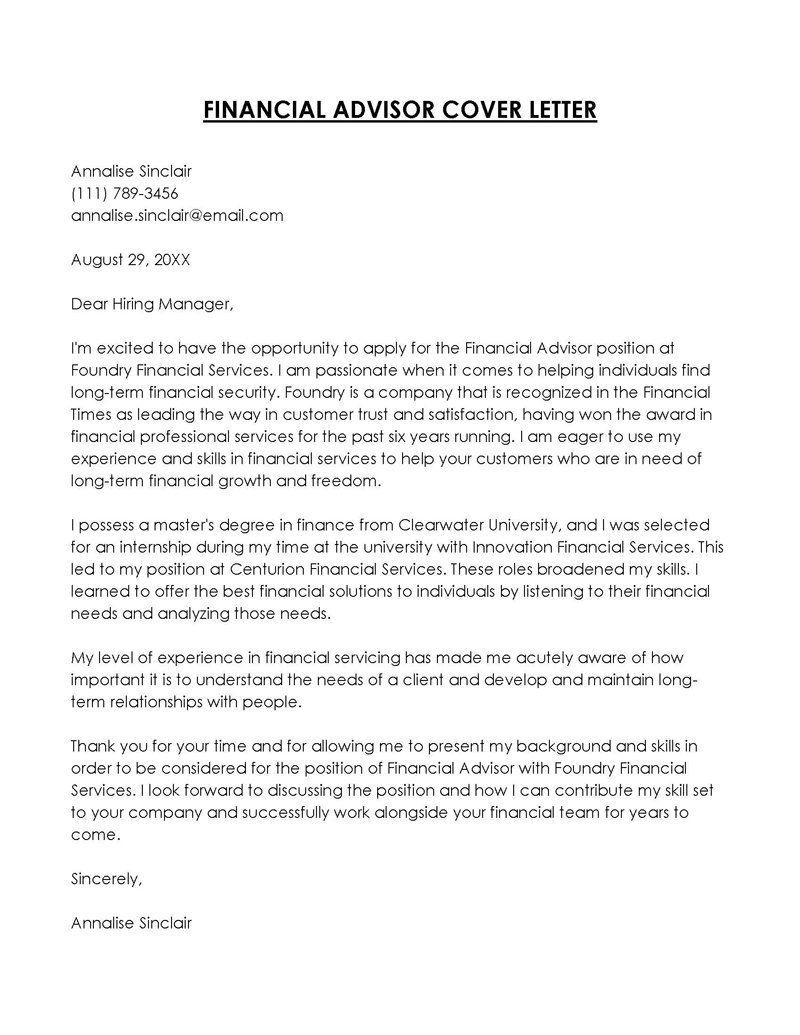
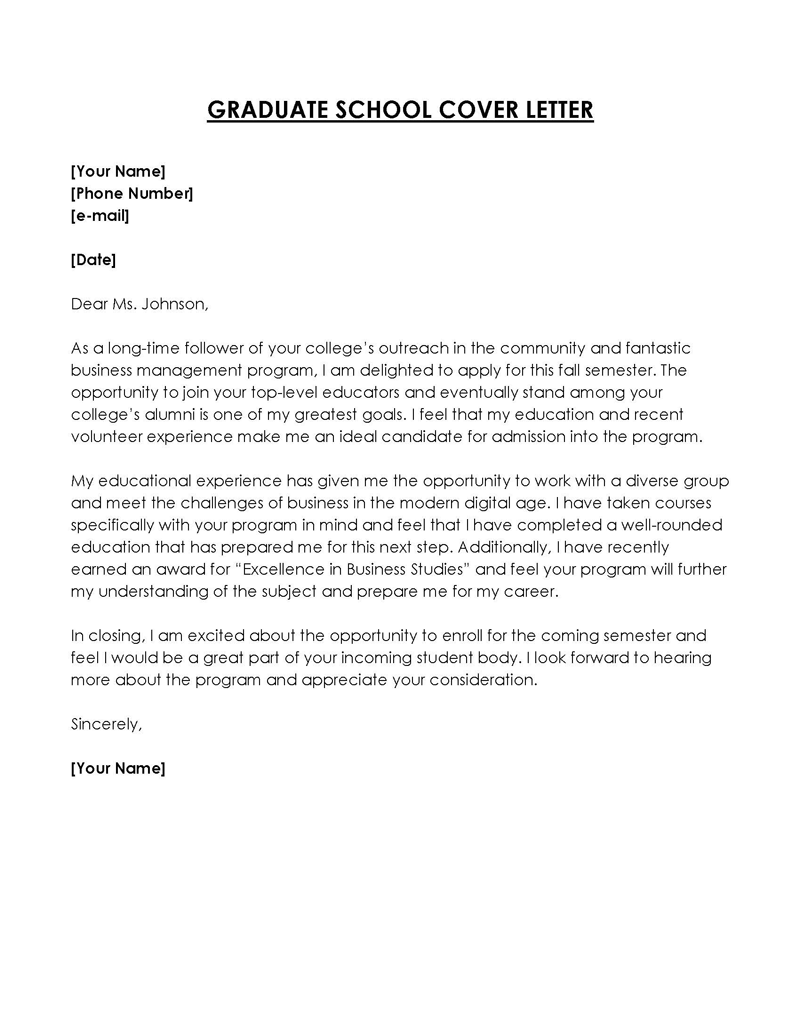
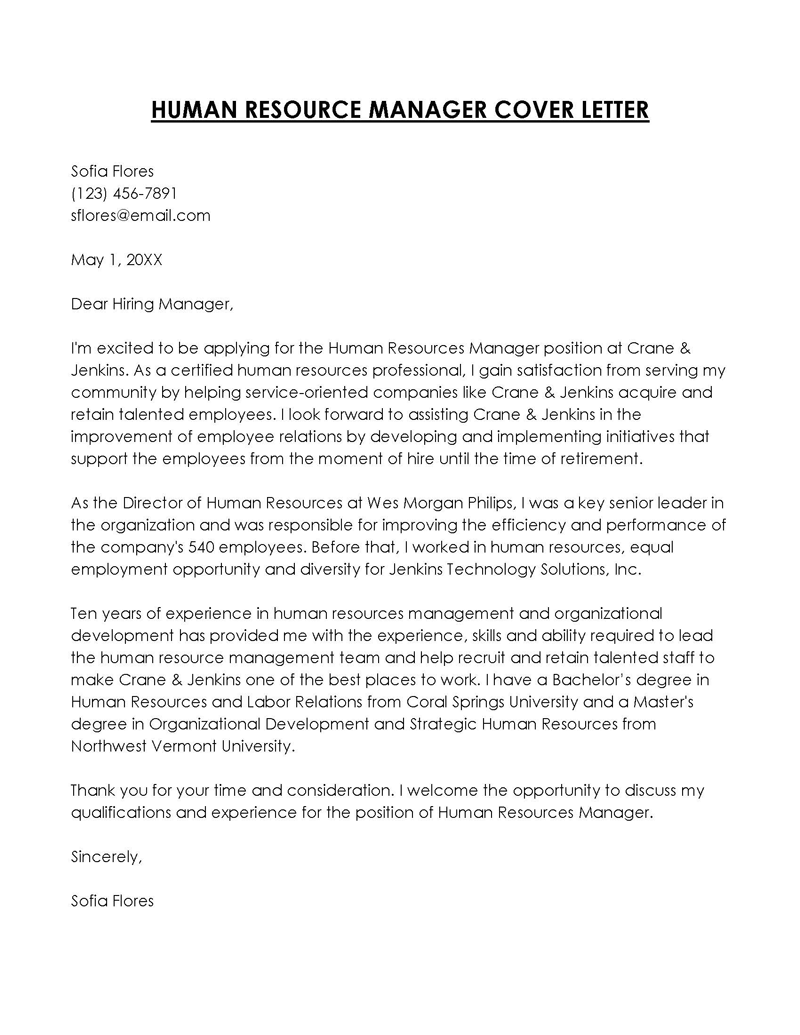
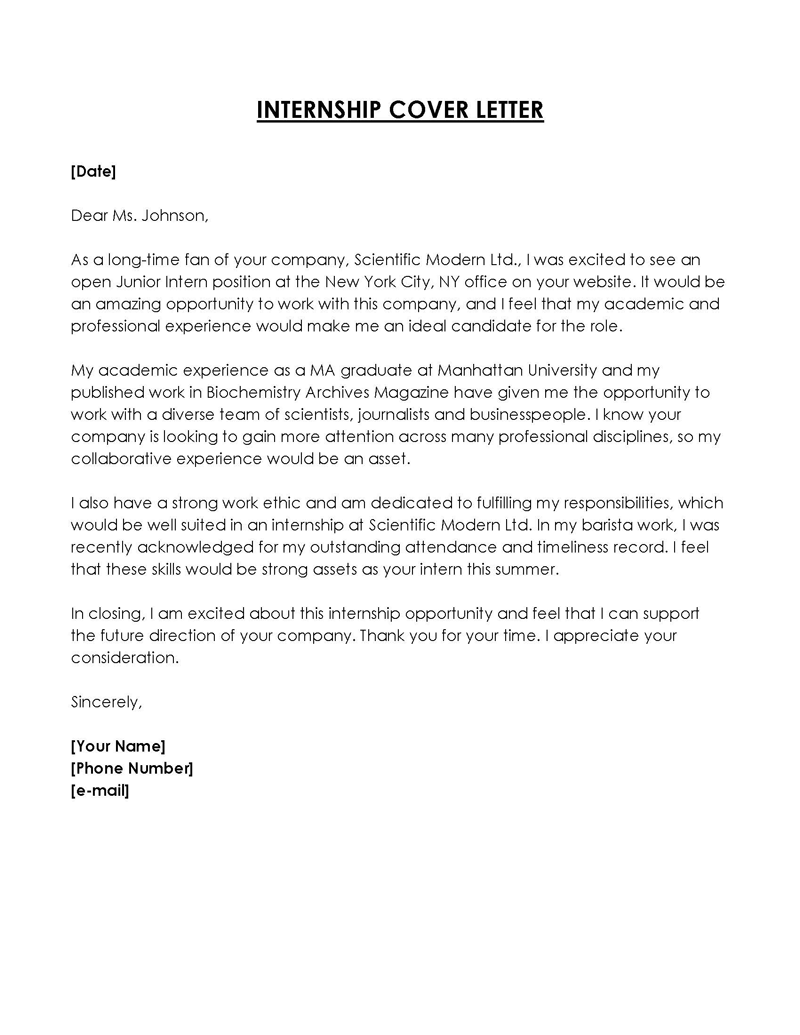
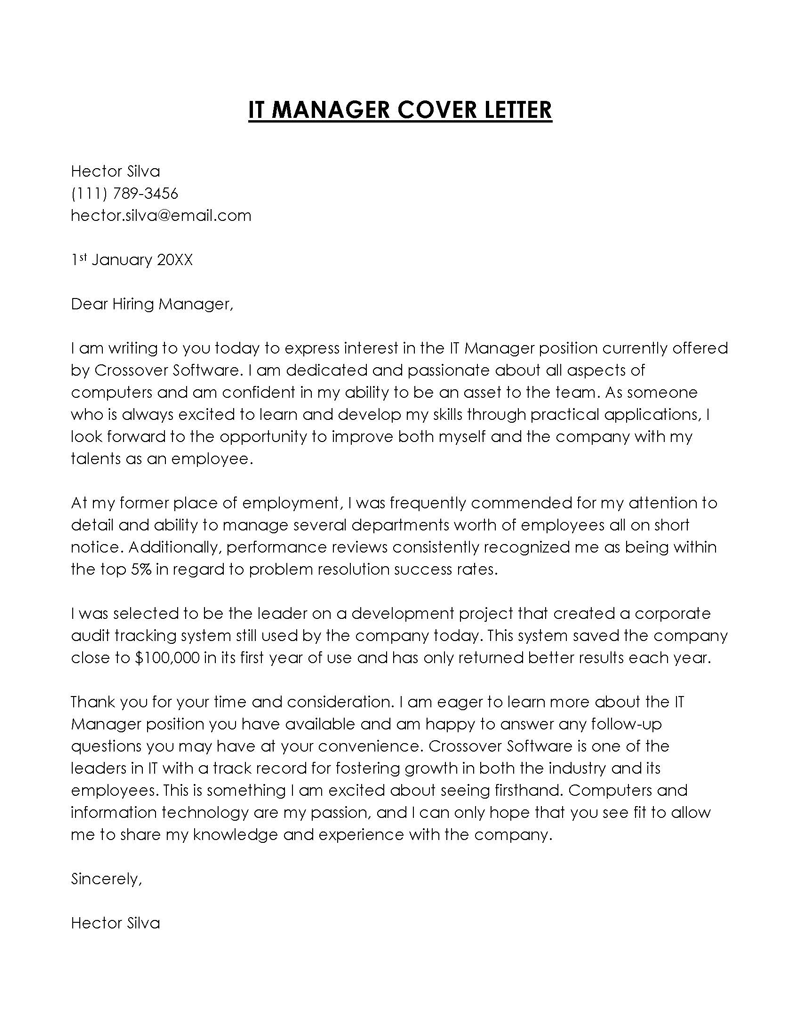
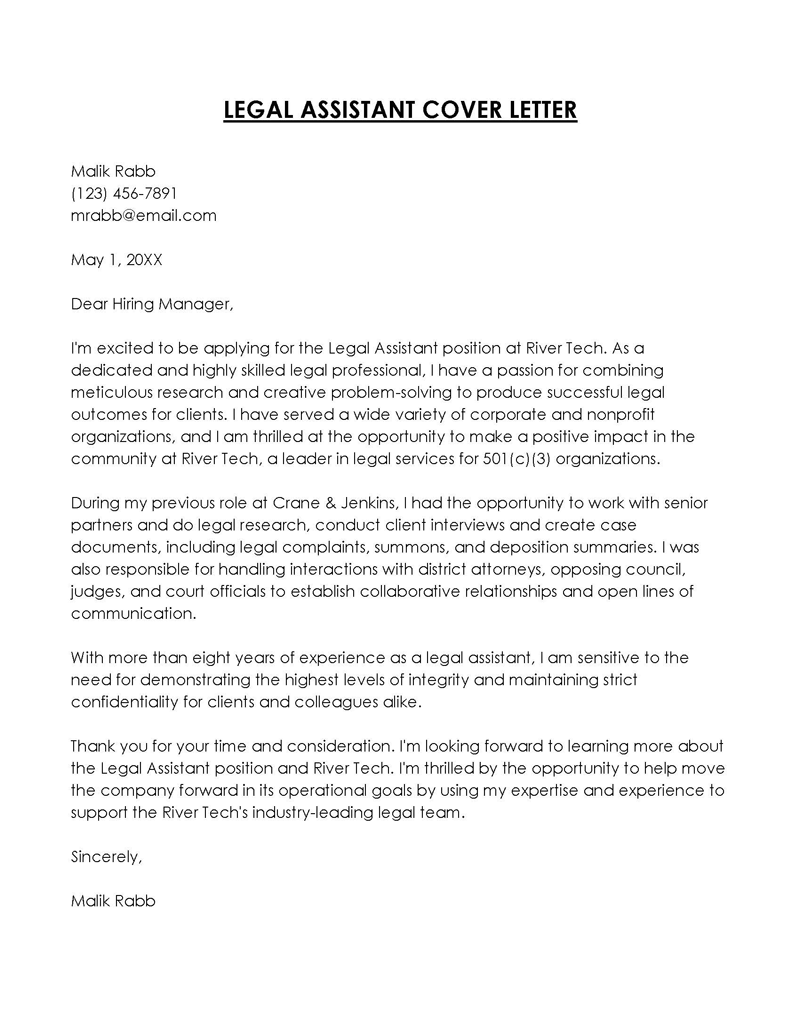
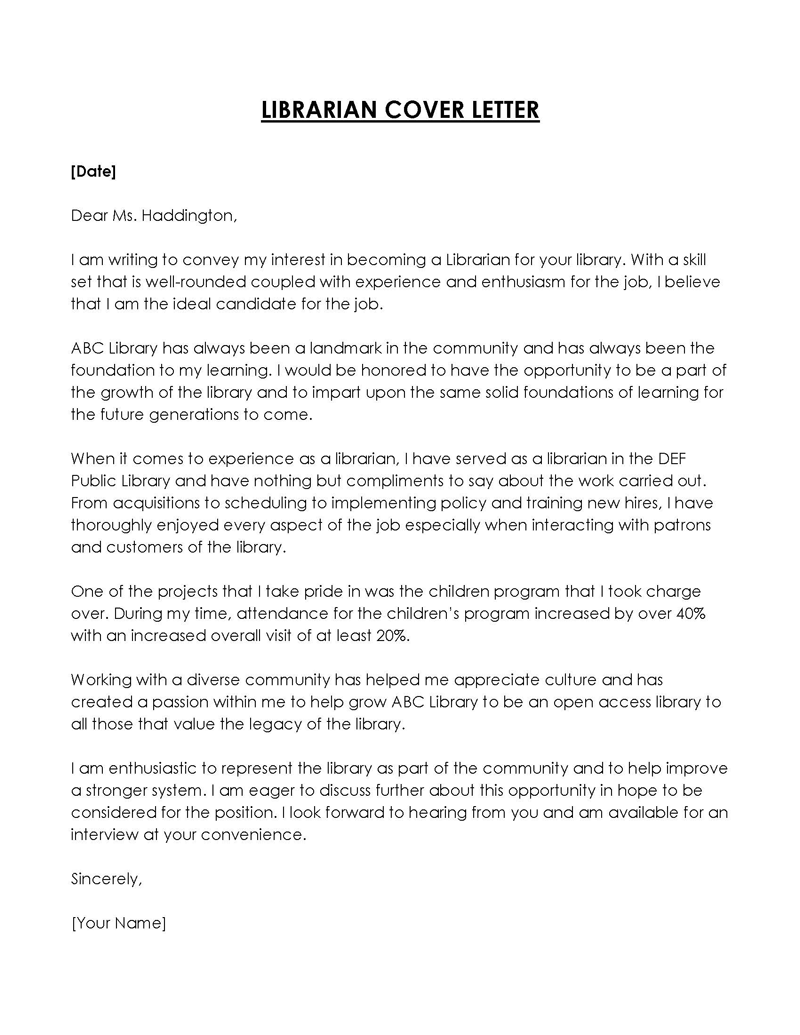
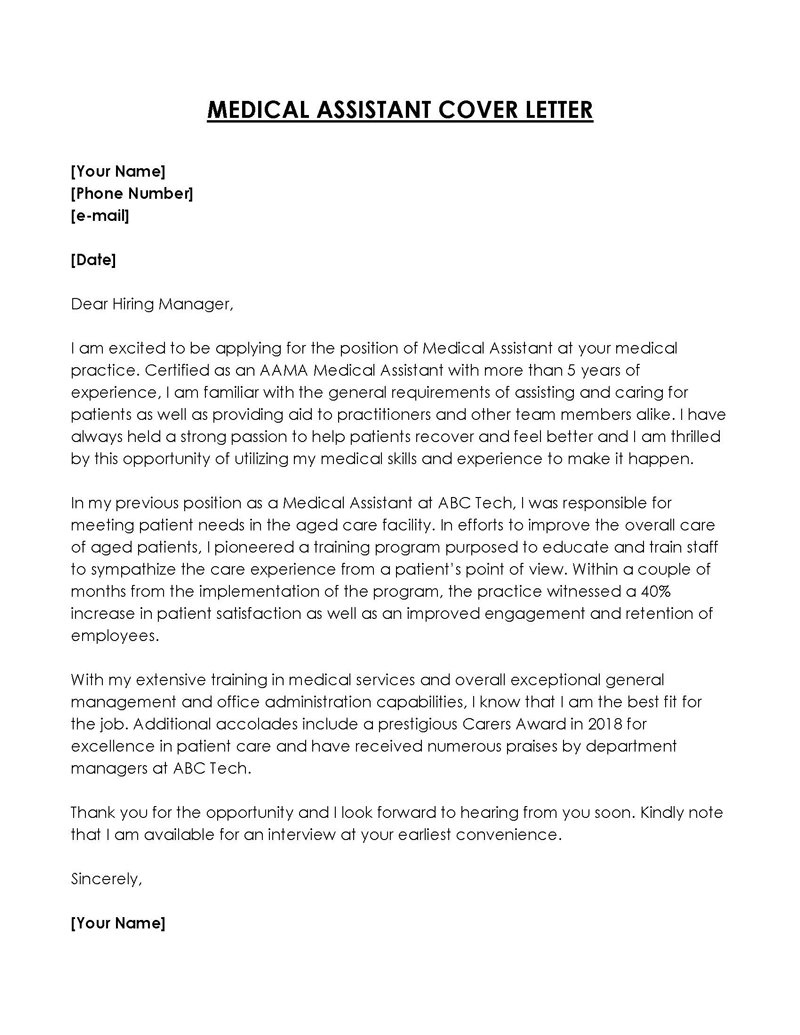
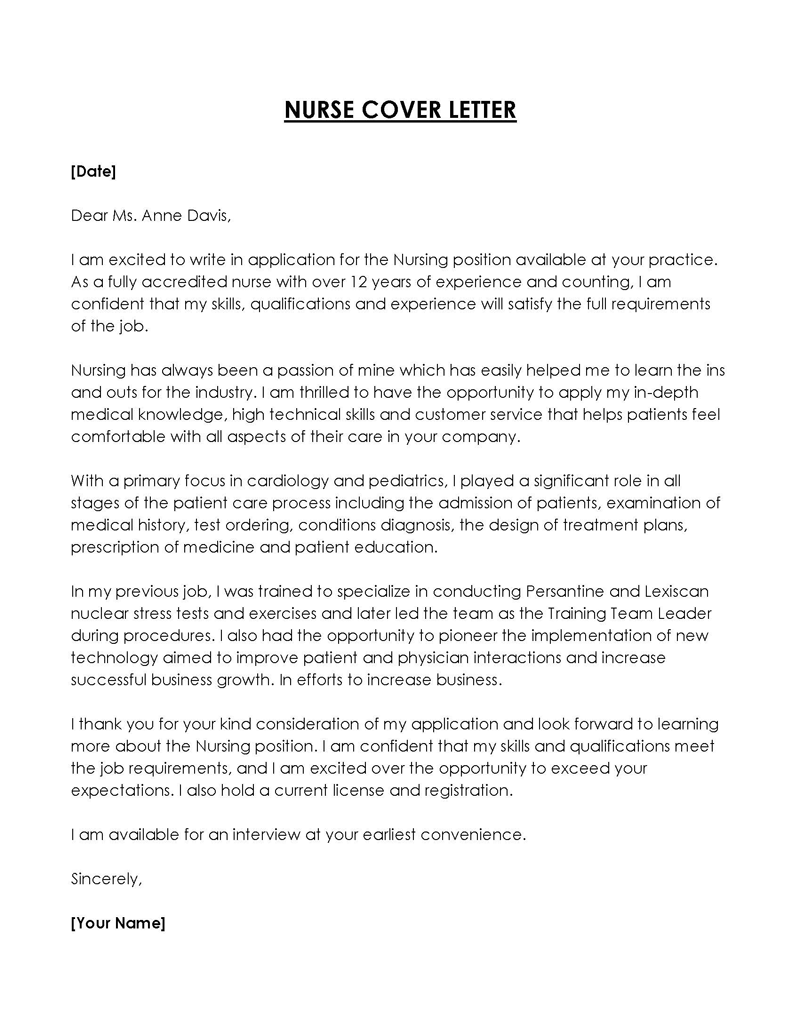
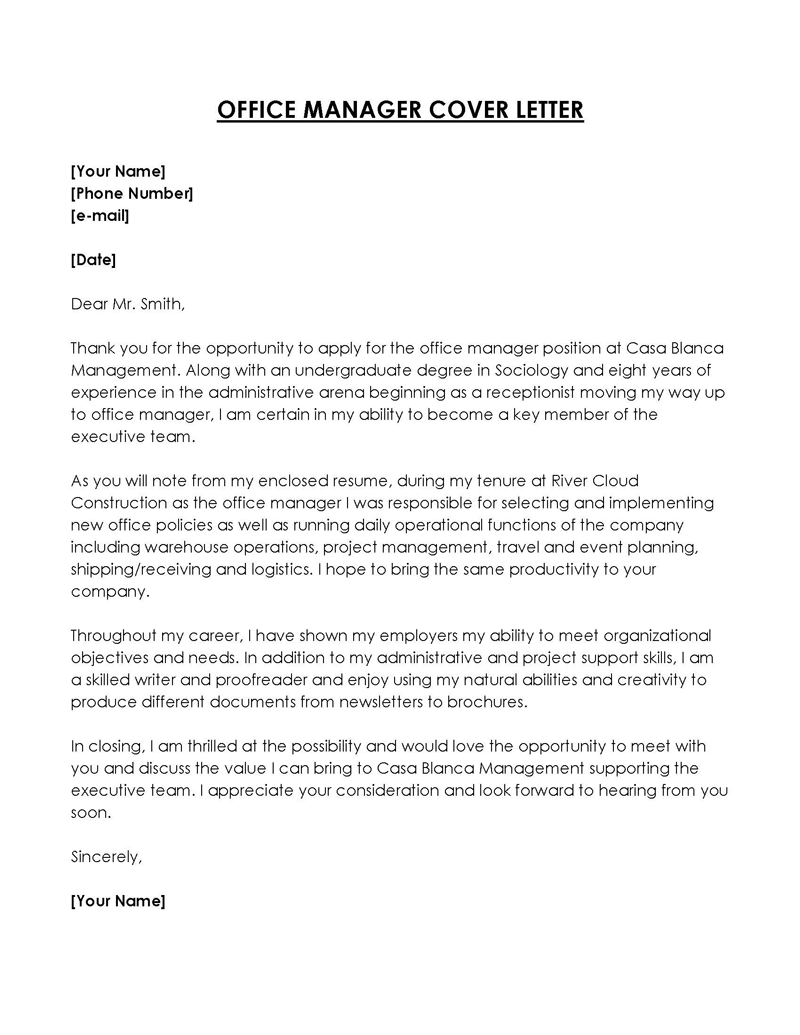
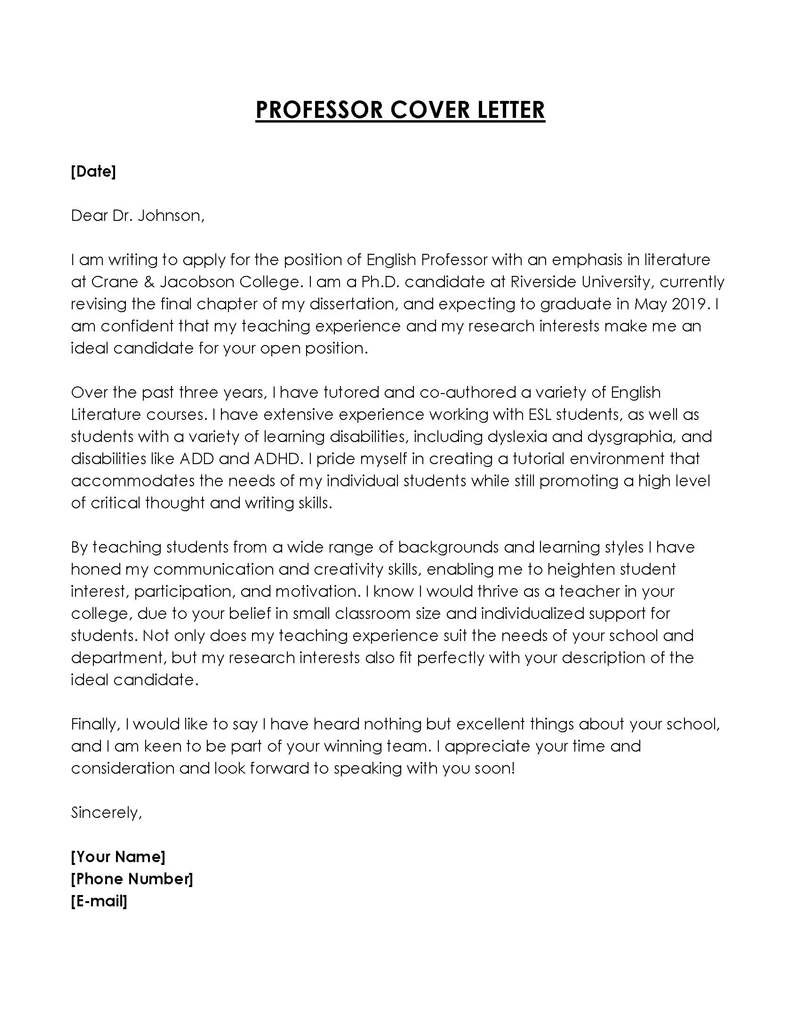
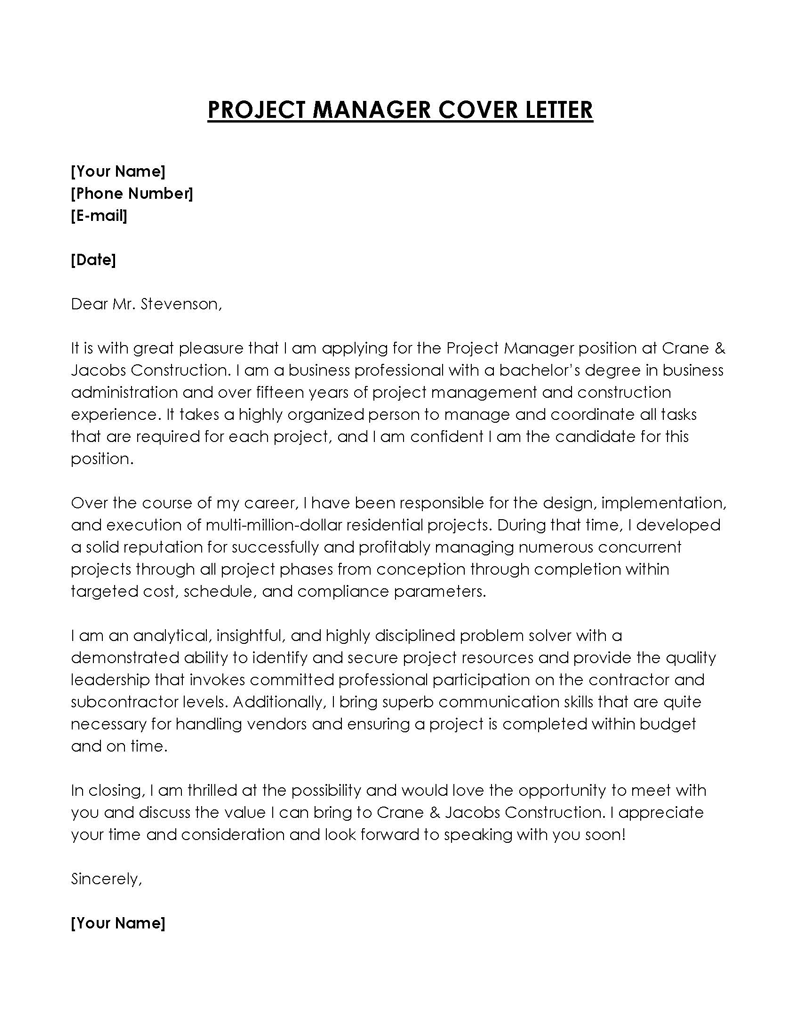
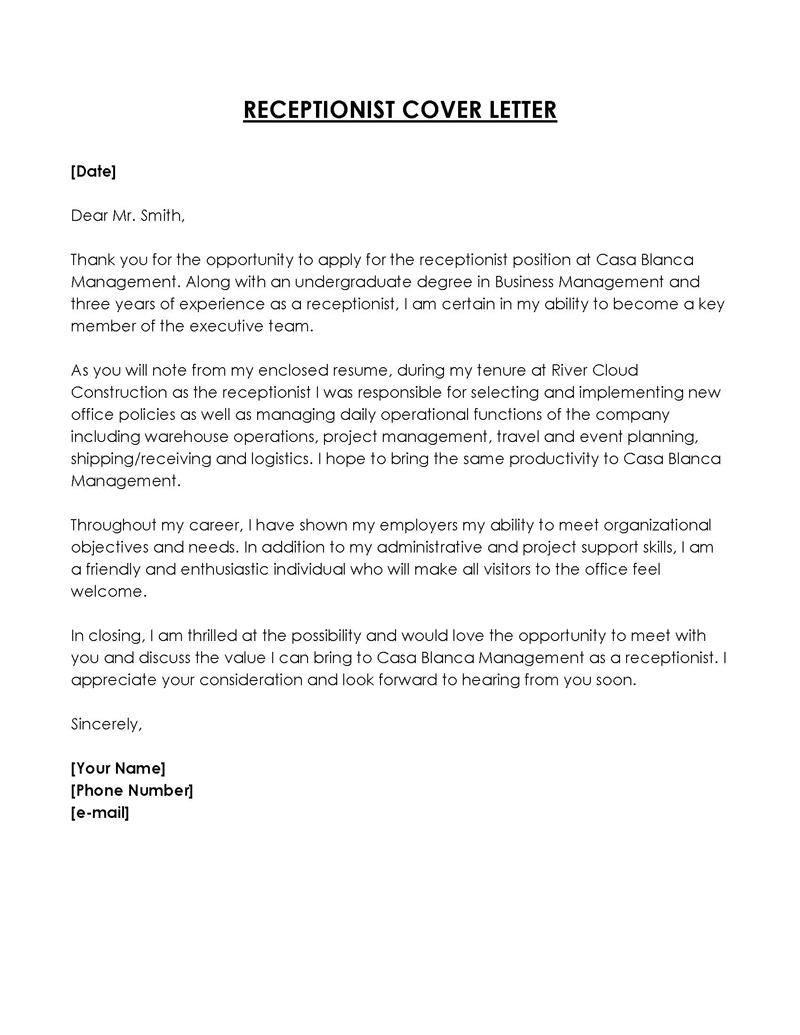
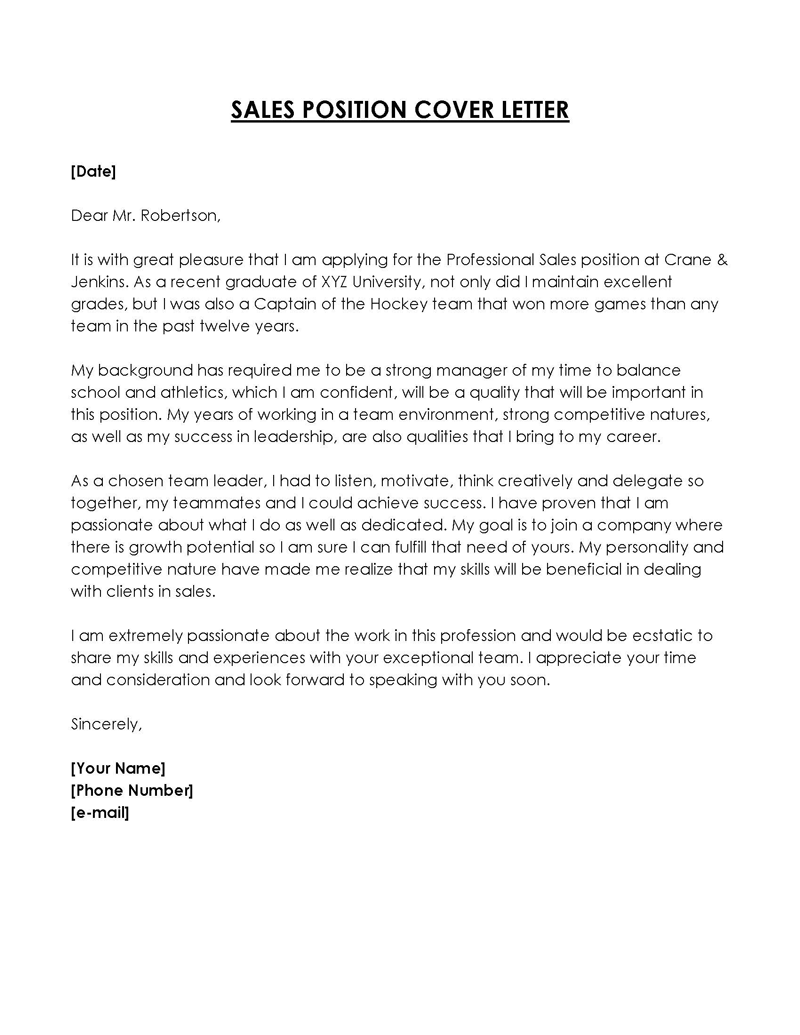
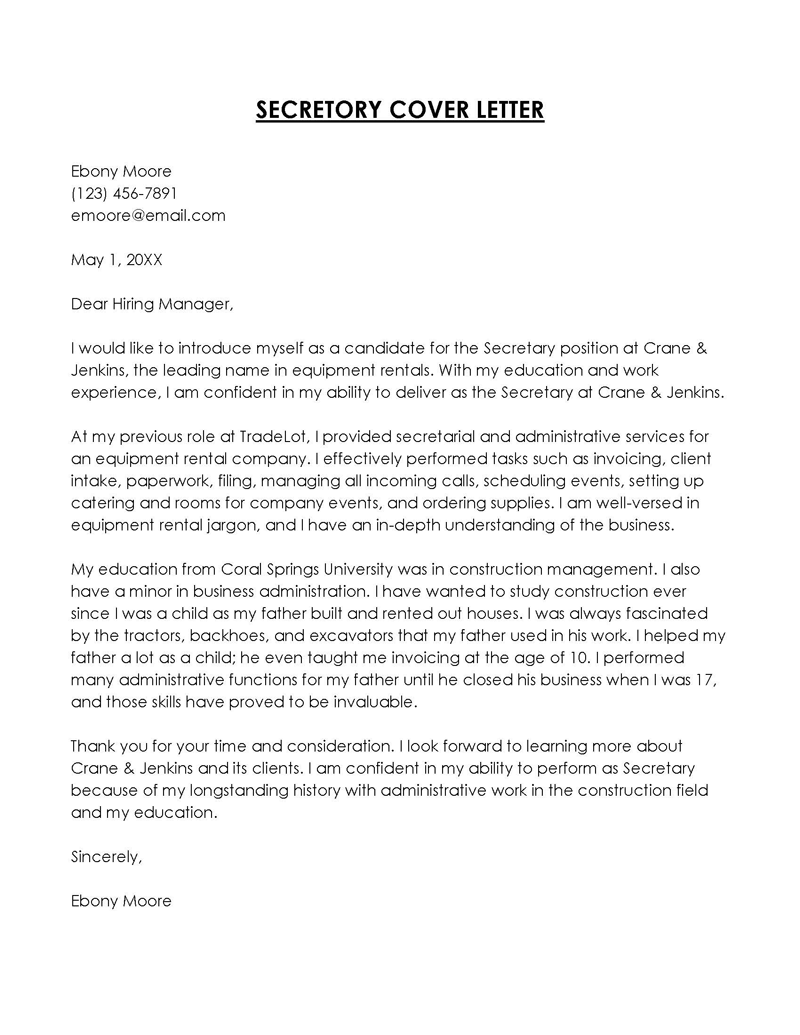
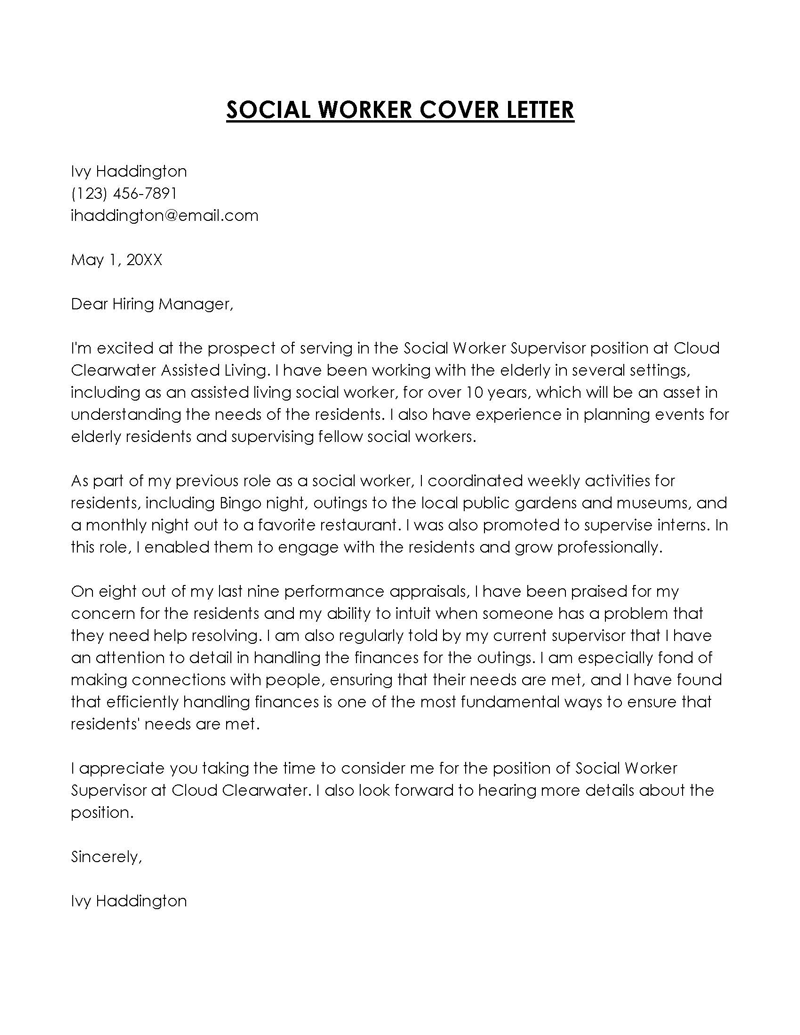
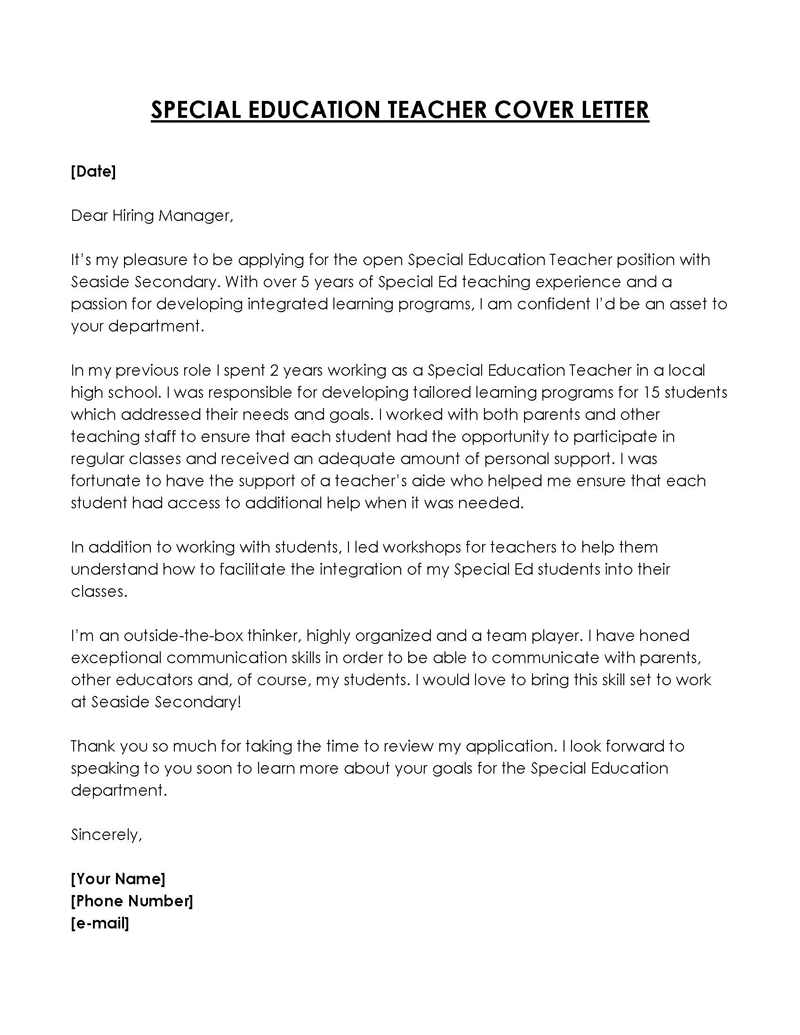
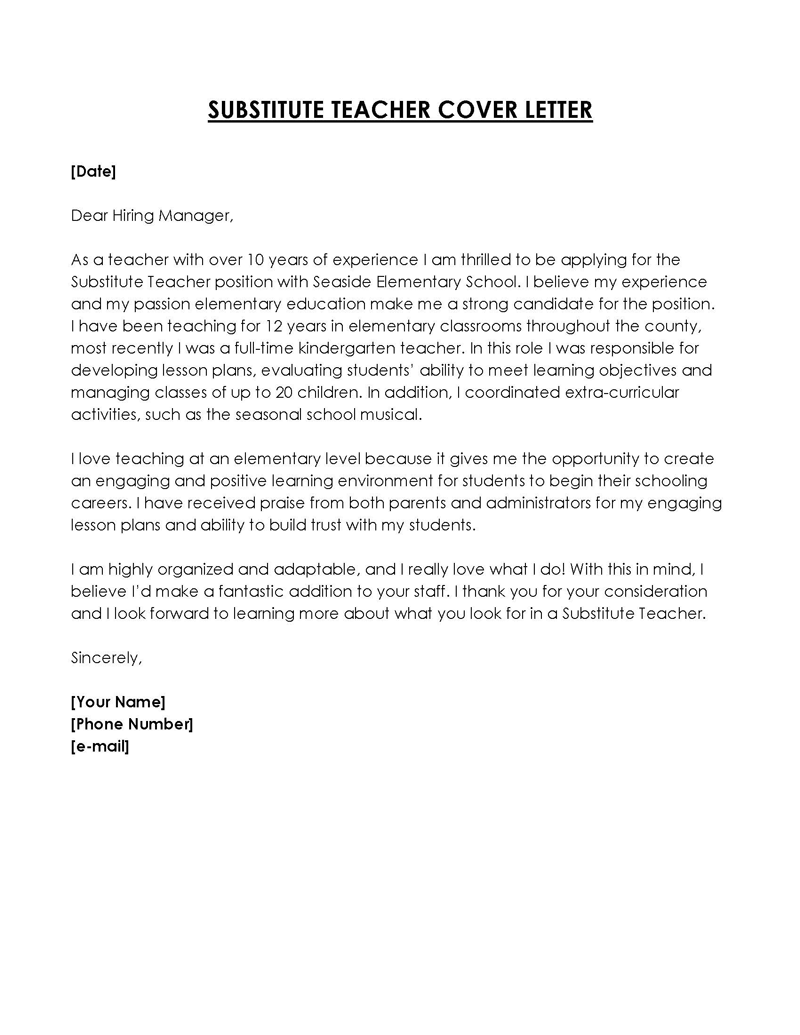
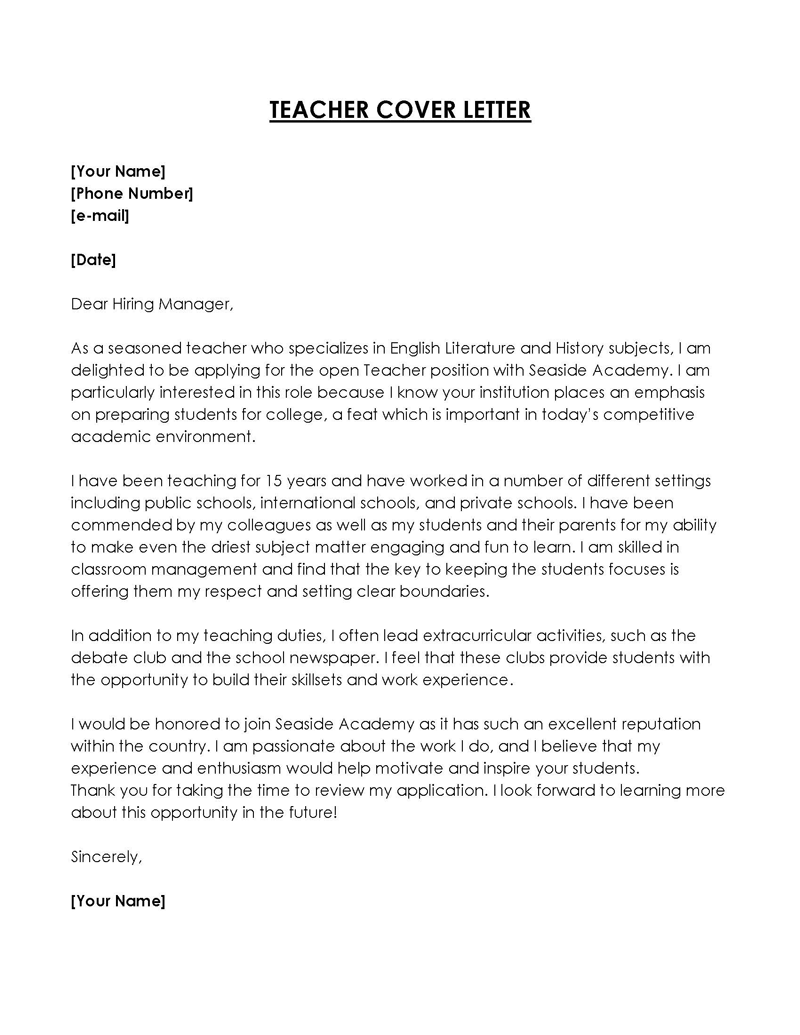
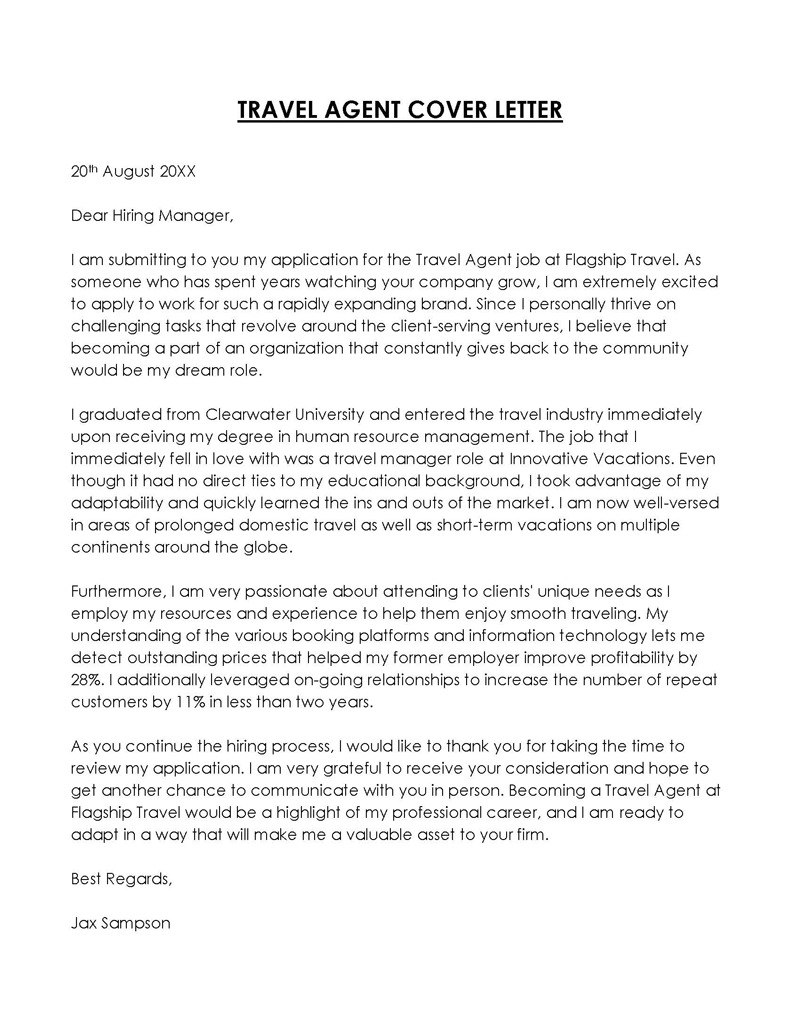
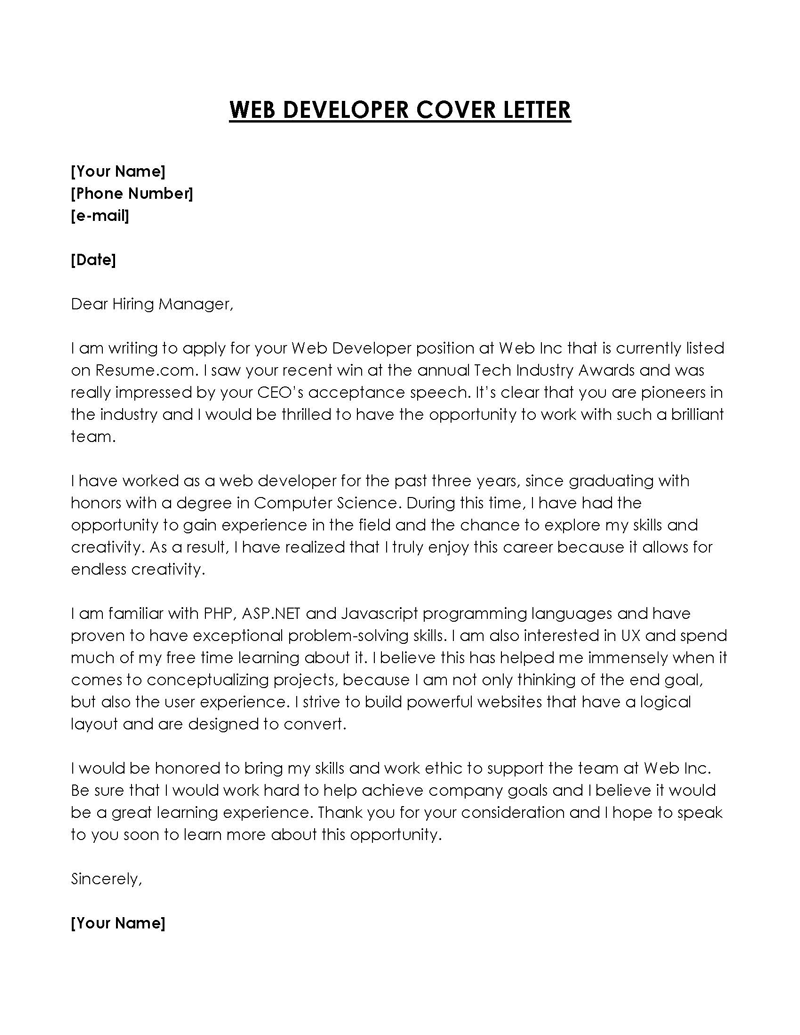
Are Cover Letters Actually Required?
A cover letter is an essential part of applying for any job. It allows you to share a particular view of your candidacy and demonstrate how well you meet the criteria for the job. As with any other aspect of your application, it is paramount that your letter is well-written, unique to the specific company, and presents you positively.
Although many people find writing a cover letter to be a daunting task, including one with your job application can help pique the hiring manager’s interest and encourage them to read it. Your chances of being selected for interviews will consequently rise, which will ultimately result in you getting a job.
Impressive cover letters can also distinguish you from other candidates, particularly those who did not include one, because they show initiative, dedication, and how much effort you are willing to invest in pursuing that particular opportunity.
Steps for Writing a Cover Letter for Your Resume
Generally, the first step to writing an effective cover letter is to analyze the job you are applying for and determine what aspects make it suitable for you. You also need to conduct thorough research into the company to enable you to adapt your cover letter to their specific needs.
Then, based on your analysis, take the following steps to create an effective cover letter:
Step 1: Add your personal information
The first element of any cover letter that can accompany a resume is a letterhead containing your personal information, the date of writing the letter, and the employer’s identifying and contact information.
This letterhead should be included at the top of the page. A typical format for this would be:
- Your full name
- Street address
- City, state, and zip code
- Your mobile phone number or email address
- Your LinkedIn, portfolio, or a link to your website if you have one.
After providing your basic information, skip a single line and provide the current date on which you are writing the letter.
Next, provide the recruiter’s personal information, which should be formatted as follows:
- The recruiter’s name
- Title
- Company name
- Company address
Step 2: Address the recruiter or hiring manager
Another key item of an effective cover letter is the greeting or salutation. It is crucial that you mention the correct name and title of the person you are writing to and avoid using generic salutations such as “Dear Sir/Madam” or “To whom it may concern.” Such greetings are impersonal and may make the hiring manager disregard your application documents altogether. A good way to write this section would be to include the traditional “Dear” greeting, followed by the recruiter’s first and last name. You may also include their title if you know it.
EXAMPLE
Dear Ms. Jane Smith
Step 3: Tell your story
In the next section, you need to write an appealing and convincing opening paragraph that will capture the prospective employer’s attention and compel them to continue reading the letter. You must make the opening statement memorable, interesting, and pertinent.
The best way to achieve this is by telling your story about the job you want. Use language that clearly shows how the position matches your qualifications, skills, and experience. Also, make sure to mention the title of the job you are pursuing. You should also highlight your enthusiasm for the company by mentioning how eager you are to work with them, what you know about the company, and how your skills can complement the job they advertised.
Step 4: Convey why you are a good fit
The next step in writing an effective cover letter is elaborating on why you are a good candidate for the job and the company culture. If you are having trouble determining what exactly makes you a good fit for a particular job or company, there are a few ways to determine what to include in this section.
First, look at the job description and find out what types of skills, accomplishments, and qualifications the prospective employer is looking for in the particular hire or the problems they are looking to solve. You can also conduct thorough research on the company by reading its website, press releases, annual reports, and other public information to better understand the company culture and what type of candidates they are looking to recruit. Use this information to match your skills and qualifications with the needs of the job.
Step 5: Support your qualifications with examples and numbers
After making a more detailed case for why you would make a good candidate for the company, you also need to demonstrate how your skills and abilities meet or exceed the prospective employer’s expectations. You can do this by including specific examples of when you demonstrated the skills and abilities needed for the job in question. You can also use numbers and statistics to quantify your qualifications, which helps you stand out from the competition.
EXAMPLE
If the prospective employer requires candidates who have extensive experience in a particular sector, SEO skills, you can mention that you previously designed a captivating software application that included a dynamic search engine that ranked within the top 5 results for a particular keyword across multiple web pages across the world.
A URL link to this particular website could also be provided to support these claims.
Step 6: End with a call to action
The last section of a typical cover letter is the call to action statement. This section also needs to be written compellingly, as it is usually the last chance to emphasize your excitement for the job and how you are the best candidate for the position. But before you include the call to action statement, consider briefly mentioning any points you could not include in the letter’s body paragraphs, such as any additional information about yourself that can help the hiring manager make a more informed decision about hiring you.
You should also thank the prospective employer for their time and consideration, then add a call to action statement that suggests the sort of action that you would like the prospective employer to take.
EXAMPLE
You can request an interview to discuss the role and what you can offer as an employee.
Lastly, write a formal sign-off such as “Thank you,” “Best regards,” “Kind regards,” Sincerely,” etc., then provide your signature.
Template for Resume Cover Letter
template
[Your Name]
[Your Address]
[City, State, Zip Code]
[Your Email Address]
[Your Phone Number]
[LinkedIn Profile or Personal Website (if applicable)]
[Date]
[Hiring Manager’s Name]
[Company Name]
[Company Address]
[City, State, Zip Code]
Dear [Hiring Manager’s Name],
I am writing to express my interest in the [Job Title] position listed on [Where You Found the Job Posting, e.g., Company’s Careers Page, LinkedIn, etc.]. With a strong background in [Your Field/Industry] and proven [Mention a Key Skill or Experience], I am excited about the opportunity to contribute to [Company Name]’s success.
In my previous role at [Your Last Company], I [Describe a Relevant Achievement or Project]. This experience honed my skills in [Mention Specific Skills Relevant to the Job], and I am confident in my ability to bring similar results to [Company Name].
[In the next paragraph, provide more details about your relevant experience or skills. This is a good place to tell a brief story or give an example that shows how you have applied these skills in a past position. For instance, discuss how you led a team, managed a project, solved a problem, or contributed to business growth.]
What excites me most about the opportunity at [Company Name] is [Mention something about the company or position that aligns with your values or career goals]. I admire [Something Noteworthy about the Company or its Culture] and see a great alignment between my professional skills and the team’s current needs.
I am eager to bring my expertise in [Mention a Key Skill or Area of Expertise] to [Company Name] and am enthusiastic about the chance to be a part of [Something Notable about the Company or Team]. I look forward to the possibility of discussing this exciting opportunity with you. Thank you for considering my application. I am available at your convenience for an interview and can be reached at [Your Phone Number] or via email at [Your Email Address].
Thank you for your time and consideration. I am looking forward to the opportunity to contribute to [Company Name] and to grow both professionally and personally through this role.
Sincerely,
[Your Name]
Sample Professional Cover Letter
sample 01
Dear Dr. Smith,
I am writing to express my keen interest in the Assistant Professor position in the Department of Environmental Science at Prestige University, as advertised on the university’s careers page. With a Ph.D. in Environmental Science from Ivy League University, extensive teaching experience, and a passion for climate change research, I am excited about the opportunity to contribute to your esteemed department.
My doctoral research at Ivy League University focused on the impact of urbanization on coastal ecosystems, leading to groundbreaking findings that were published in the ‘Journal of Environmental Science and Change’. This work not only earned the Best Dissertation Award in 20XX but also sparked my ongoing commitment to research in this critical area.
In my role as an Associate Lecturer at Green College, I taught courses such as ‘Urban Ecology’ and ‘Climate Change Mitigation’, where I implemented an interactive learning approach. This method, which emphasizes student engagement and real-world applications, was highly successful, as reflected in my receipt of the Green College Outstanding Teaching Award in 20XX.
I am particularly drawn to the Assistant Professor position at Prestige University due to your department’s innovative research on sustainable urban development and its commitment to interdisciplinary collaboration. I am enthusiastic about the prospect of working alongside your distinguished faculty and contributing to the Sustainable Cities Research Project.
Enclosed is my curriculum vitae, detailing my academic journey and professional achievements. I am eager to bring my expertise in urban ecological studies to Prestige University and contribute to the department’s mission of creating sustainable and resilient urban environments. I look forward to the possibility of discussing this exciting opportunity with you.
Thank you for considering my application. I am available for an interview at your earliest convenience and can be reached at (123) 456-7890 or via email at emily.johnson@academicmail.com.
Sincerely,
Dr. Emily Johnson
sample 02
Dear Ms. Thompson,
I am writing to express my interest in the Hotel Manager position at Elegant Stay Hotels in Metropolis, as recently advertised on your corporate website. With over ten years of experience in the hospitality industry, including a successful tenure as Assistant Manager at the renowned Paradise Gateway Hotel, I am excited about the opportunity to bring my expertise in guest services, team management, and operational efficiency to your esteemed hotel.
At Paradise Gateway Hotel, I played a pivotal role in enhancing guest satisfaction ratings by 30% through strategic improvements in customer service protocols. My efforts in staff training and development led to a significant reduction in employee turnover, fostering a motivated and skilled team. Additionally, I successfully managed the hotel’s renovation project, ensuring minimal disruption to guests and operations, and resulting in a 20% increase in room bookings post-renovation.
I am particularly attracted to the opportunity at Elegant Stay Hotels due to your commitment to providing guests with a luxurious and memorable experience. Your hotel’s reputation for excellence in service and innovation aligns perfectly with my professional skills and personal aspirations. I am especially keen on contributing to your initiatives in sustainable hospitality practices and community engagement.
Enclosed is my resume, which provides further detail about my professional journey in the hospitality sector. I am enthusiastic about the chance to bring my passion for hospitality, along with my experience in hotel management, to Elegant Stay Hotels. I am confident in my ability to contribute positively to your team and to uphold the high standards for which Elegant Stay Hotels is known.
Thank you for considering my application. I am looking forward to the opportunity to discuss how my experience and vision align with the needs of your hotel. I am available for an interview at your earliest convenience and can be reached at (555) 123-4567 or via email at jacob.martinez@hospitalitymail.com.
Sincerely,
Jacob Martinez
Do’s and Don’ts of Cover Letter
A cover letter is a significant document that can increase or decrease your chances of securing a job interview with a prospective employer. As such, when writing the letter, there are certain things that you should do and things you should avoid to ensure it is effective in meeting the intended objective.
The following are the dos and don’ts of writing a cover letter:
Things to consider when writing a resume cover letter include the following:
- Choose an appropriate tone: Using a conversational tone throughout the cover letter while maintaining professionalism is highly recommended, as it not only demonstrates your awareness of the job requirements and showcases your enthusiasm for the position but also shows you as a friendly person who is easy to work with.
- Use Venn diagrams: It would be helpful to use Venn diagrams to brainstorm and better organize your thoughts before starting to write a cover letter. Some people use mind maps to achieve the same goal, while others just write the key points on paper. Regardless of the approach you take, it’s critical to remember that your cover letter should demonstrate that you have the necessary relevant experience for the position and are at least somewhat familiar with its requirements and demands.
- Be honest: It should be honest and straightforward. It should not contain lies or half-truths, nor should it require you to fabricate information about yourself, such as by exaggerating your skills, experience, or accomplishments. Instead, provide factual information and always provide specific examples and numbers that can support your qualifications.
- Proofread: Proofreading is a crucial step before submitting a cover letter. It also allows you to demonstrate your professionalism and attention to detail by correcting any grammar, spelling, and punctuation errors that hiring managers may find offensive. In addition to proofreading the letter yourself, you also need to consider asking someone else to read it to check for any flaws in your writing that you may have missed.
- Use a unique visual format: While the main purpose of your cover letter is to introduce yourself and connect with the prospective employer, it can also be a great opportunity to creatively showcase your skills and unique capabilities. Occasionally, use unusual visual formats to make a strong statement that highlights your industry knowledge, creative abilities, and overall personality. However, ensure that the visual formats you employ are appropriate for the company you are applying to and its industry.
- Consider writing in the company’s voice: Getting the company’s voice and tone right when writing a cover letter is essential because the prospective employer will use it to gauge whether you would fit in with their own employees. You should therefore consider adopting the company’s voice while writing your letter. Additionally, be sure to select and employ words that accurately represent the image and philosophy of the particular company.
The things to avoid when writing a cover letter include the following:
- Don’t use the same words as everyone else: You should strive to sound unique when writing a cover letter. Avoid cliché phrases such as “I am an enthusiastic and creative individual with proven abilities.” Instead, use words that make the prospective employer notice you and show them how you will best contribute to their team.
- Avoid overused words and expressions: You must also refrain from using overly used phrases and words such as “qualified,” “responsible, dedicated, hard worker,” etc., as they make your writing seem generic. Instead, use unique phrases that reflect your personality and experience and include action verbs from the job description to make your cover letter more compelling to read.
- Do not include irrelevant information: Avoid including any unnecessary information that does not add to your professional image. Highlight only the skills and experiences you possess that are relevant to the position you are looking to fill.
- Do not write a generic cover letter: By all means, avoid submitting cover letters that sound generic. Generating personalized cover letters for each job you apply for is the best way to ensure you have the best chance of securing an interview and, eventually, a job offer. One good way to achieve this is by addressing your letter to a specific recipient in the company using their correct name and title.
- Do not exceed a page: A cover letter should be concise. It should not be longer than a single page and only be about 250-400 words long. To ensure that your cover letter is not overly-long, focus on showcasing only your most relevant skills and experiences. Do not be too detailed in your letter, and avoid using long sentences.
- Do not apologize for your lack of experience: Never apologize for your lack of experience or skills in your cover letter because it makes you look underconfident. Instead, provide examples of how you would use your knowledge and abilities to be productive at the job.
Frequently Asked Questions
When writing a cover letter for a job where you feel you do not meet all the requirements, it is important to highlight your relevant skills and qualifications without exaggerating or lying. If the job requires a certain number of years of experience in a field and you do not have it, highlight the areas where your skills match their requirements. In addition, you must also demonstrate your interest in the job, use numbers to show how you will be able to achieve quantifiable results if hired and list your relevant training and certifications.
Writing a good cover letter for a first job is difficult because you are less likely to have enough experience. In this case, it is essential that you highlight your educational background, as it is your most important asset; emphasize your notable strengths; and highlight your desirable skills that will make it easier for you to adapt to the job and develop professionally. Additionally, emphasize why you are a good candidate for the position by elaborating on specific instances and providing figures to illustrate your pertinent qualifications.
Yes. You must write a different cover letter each time you apply for a different job. Doing so lets you customize your letter for the company and position you are applying for by citing the specific skills and qualifications the prospective employer is looking for in a new hire.
Any irrelevant or unnecessary information should not be included in a cover letter. In addition, avoid overstating your qualifications, do not include cliché phrases or words, and avoid mentioning your salary requirements or expectations. Your cover letter should not include any negative comments about your current or previous employer or any unrelated information.
Yes. It is crucial to address any employment gaps in your resume, particularly if the length of these gaps is significant. Your chances of getting an interview significantly increase if you can convince the prospective employer that the employment gap was due to a genuine reason like pregnancy or a career break for raising children, etc., and allay any worries they might have about your suitability for the position.












